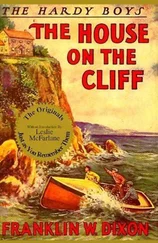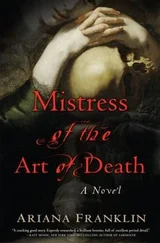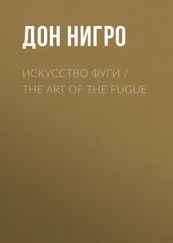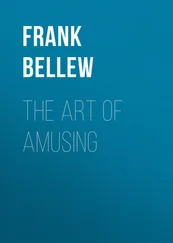Frank Abagnale - The Art of the Steal
Здесь есть возможность читать онлайн «Frank Abagnale - The Art of the Steal» весь текст электронной книги совершенно бесплатно (целиком полную версию без сокращений). В некоторых случаях можно слушать аудио, скачать через торрент в формате fb2 и присутствует краткое содержание. Год выпуска: 2001, ISBN: 2001, Издательство: Broadway Books, Жанр: Старинная литература, на английском языке. Описание произведения, (предисловие) а так же отзывы посетителей доступны на портале библиотеки ЛибКат.
- Название:The Art of the Steal
- Автор:
- Издательство:Broadway Books
- Жанр:
- Год:2001
- ISBN:9780767910910
- Рейтинг книги:4 / 5. Голосов: 1
-
Избранное:Добавить в избранное
- Отзывы:
-
Ваша оценка:
- 80
- 1
- 2
- 3
- 4
- 5
The Art of the Steal: краткое содержание, описание и аннотация
Предлагаем к чтению аннотацию, описание, краткое содержание или предисловие (зависит от того, что написал сам автор книги «The Art of the Steal»). Если вы не нашли необходимую информацию о книге — напишите в комментариях, мы постараемся отыскать её.
The Art of the Steal — читать онлайн бесплатно полную книгу (весь текст) целиком
Ниже представлен текст книги, разбитый по страницам. Система сохранения места последней прочитанной страницы, позволяет с удобством читать онлайн бесплатно книгу «The Art of the Steal», без необходимости каждый раз заново искать на чём Вы остановились. Поставьте закладку, и сможете в любой момент перейти на страницу, на которой закончили чтение.
Интервал:
Закладка:
The cycle continued for me. Nobody cared about my performance on the job, only my illicit past. Nobody was willing to believe that I was a different person. Once a con man, in their view, always a con man. It’s a terrible feeling to want to reconstruct your life, and yet find yourself blocked at every turn. This made for a lot of tension.
A hopelessness sank in. This was not the routine hopelessness of a bad day or a bad week, but a deep despair and a recognition that nothing could go right again. Even though I knew the dire consequences, I seriously began to think of reverting to my past criminal behavior. There seemed to be no other way to get anywhere. I was angry at the establishment for refusing to give me that second chance that I knew I would make good on.
In my latest incarnation, I was working at night as a movie projectionist—that projectionist’s license I acquired in prison had come in handy after all. In this case, I had told the manager about my past, and he didn’t really care. I was upstairs locked in this booth for eight hours; what harm could I do? The job paid pretty well, but it was hardly thought-provoking work. I thought to myself that I was smarter than this, that I was wasting genuine talents that I possessed. What had made me so good as a con artist was my photographic memory that enabled me to acquire the knowledge and pose as someone else in an astonishingly short span of time. I could focus on things with an extraordinary intensity. And I was extremely observant, always noticing the small things that others didn’t. These traits gave me an extra edge that I milked for all they were worth. But they didn’t go very far in the cramped milieu of a projectionist’s booth.
WHEN WRONGS CAN MAKE A RIGHT
Something had to change and change fast. Luckily, it did. One day my parole officer said to me, “You know so much about false documents and check kiting, have you ever given thought to going out and giving talks to law enforcement agencies about these things?”
“Well, no,” I said.
“Well, the government has approached me about this,” he said. “There would be no pay. And, of course, nobody could force you to do it.”
“How would it work?” I asked.
“You’d just talk to law enforcement agents about cons and counterfeit documents and how to recognize them,” he said. “Give them tips on how con artists work, so they could get better at catching them.”
“I guess I could do that,” I said. “I wouldn’t have a problem with it.”
So I began to go around locally and talk in front of members of the sheriff’s office and the constable’s office. I’d lecture to local FBI agents and postal inspectors. I didn’t have any prepared remarks or slides or anything. I just told them what I did and how I did it, how I’d get false IDs and how I would open bank accounts and then withdraw money that wasn’t really there. The agents asked me questions, and I found that I never had to say that I didn’t know the answer.
The next thing I knew, the head of security for Target stores approached me and asked if I could come and talk to some of their store managers. I saw no reason not to, and so I did that, too. I got a warm and interested reception. They didn’t pay me, either.
I was still working as a projectionist but these gigs forced me to take a long hard look at myself and my prospects. I still had vision and a dreamer’s idealism. I was enjoying these little security presentations, and they ignited a new excitement in me. A plan slowly formed in my mind, one that I thought would allow me to use my expertise in a redemptive way and permit me to engage in a more satisfying life than the one I had in the projectionist’s booth. I went to my new parole officer and told him what I had in mind.
I said that, in doing these little talks, I realized that I had as much knowledge as any man alive concerning the mechanics of forgery, check swindling, counterfeiting, and other similar crimes. I’d now realized that if I directed this knowledge into the right channels, I could help people. For instance, every time I went to the store and wrote a check, I would see two or three mistakes made on the part of the clerk or cashier, mistakes that a flimflam artist would take advantage of. I had concluded that it was simply a lack of training.
I was always looking at systems and realizing how simple it was to beat them. For example, if I was going to mail a letter and I didn’t have a stamp, I knew I could take that letter and put the address of the person I was sending it to in the upper left-hand corner, and put my name in the middle of the envelope. The post office would then return it back to that person. So I would have sent it without a stamp. If I needed to get on a flight and it was fully booked, I knew that I could go to a phone, call the airline, and say, “Hi, do you have the manifest for flight 462? I’m Mr. Smith and I’m afraid I need to cancel my reservation.” There’s almost always a Smith or a Jones on just about any flight. Then I would call right back, ask if it were possible to get onto flight 462, and I’d be told, “Oh you’re in luck, we just had a cancellation.”
If I needed to make a long distance phone call and couldn’t pay for it, I knew a way to do it. You’d look around for the first available corporate building and get their main number. Say it was 999-2000. You’d dial 999-2020, figuring that it had to be someone’s extension. You get Bill Kenner in human resources. You’d say, “I’m sorry, I must have the wrong extension, could you put me back to the switchboard?” When the operator came on, you’d say, “This is Kenner in human resources, I need to make a long-distance call, could you give me an outside line?” And then you’d make your call.
It was obvious to me that every system had loopholes in it. I guess I thought in loopholes. And so I realized that I could teach people who handled checks and other legal documents how to protect themselves against fraud and theft. And I wanted to charge them.
“Well, if they’ll do it, go right ahead,” my parole officer said. “It’s up to you. But not the law enforcement people. That’s got to be free.”
I approached a suburban bank director and outlined what I had in mind. I was upfront in relating my sordid background as a chronic bilker of banks. I told him that I wanted to spend an hour one day after the bank closed to give a lecture to his employees. I told him that consumer fraud is committed today in the blink of an eye, and you needed to be prepared. If he felt the talk was worthless, I said, he didn’t owe me anything. If he found it beneficial, then he had to pay me five hundred dollars and make a few calls to colleagues at other banks and recommend that I come in and tutor their employees. I told him that if what I taught his people stopped just one bad check from crossing a teller’s window, then he would have more than made his five hundred dollars back. He told me to come on by.
The ways of the world are truly unpredictable. He liked my presentation, and I got both the pay and the referrals. This first paid appearance as a “white-collar crime specialist” led to another lecture at another bank, and another and another. Banks heard about me in Dallas. Then I got calls from El Paso. Before long, I was in demand not only by banks, but also by hotels, airlines, and other businesses. In retrospect, it was a godsend that I was paroled to Houston, because Houston was booming and that allowed me to get off to a very good start.
Twenty-five years have passed. I talk to all sorts of businesses today, and I’ve increased my fee. But to this day, I never take a dime from any law enforcement agency. I do a lot of lecturing to new agents at the FBI Academy, but I won’t accept any remuneration, not even my expenses. Part of it is, I’m just grateful to be where I am. And another part of it is that I feel this is one way I can make amends for my past.
Читать дальшеИнтервал:
Закладка:
Похожие книги на «The Art of the Steal»
Представляем Вашему вниманию похожие книги на «The Art of the Steal» списком для выбора. Мы отобрали схожую по названию и смыслу литературу в надежде предоставить читателям больше вариантов отыскать новые, интересные, ещё непрочитанные произведения.
Обсуждение, отзывы о книге «The Art of the Steal» и просто собственные мнения читателей. Оставьте ваши комментарии, напишите, что Вы думаете о произведении, его смысле или главных героях. Укажите что конкретно понравилось, а что нет, и почему Вы так считаете.












